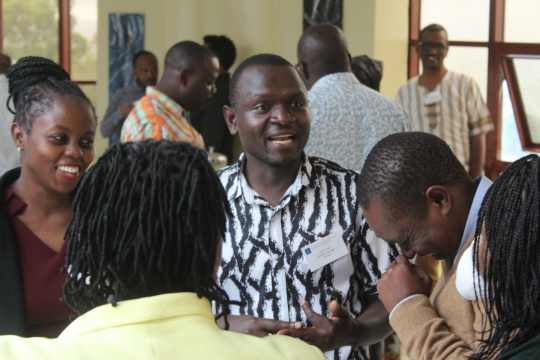27 civil servants from five East African countries met in Rwanda on November 22-24 to discuss policies for achieving a green and inclusive economy in their countries. This cross-country workshop was a part of the Inclusive Green Economy (IGE) program and the participants, so-called IGE Fellows, are the second cohort of this successful program.
The IGE program involves senior civil servants in Ethiopia, Kenya, Rwanda, Tanzania, and Uganda. They work in, for instance, ministries for finance, environment, energy, transportation, or agriculture.
Peer learning is one of the cornerstones of the IGE program. The starting point for the peer learning process is a National Policy Review (NPR) that the IGE Fellows conduct together with the IGE support teams in their countries. The “I” in IGE means that no one should be left behind, and special consideration must be taken for vulnerable groups in society when designing policies for the environment and development.
Evaluate each other’s policies
By discussing similarities and differences between the countries, advantages and disadvantages based on the NPRs, the participants can benefit from each other's practical experiences. Researchers from universities in East Africa also participated in the discussions.
In this workshop, the IGE Fellows evaluated policies on forest loss, fossil fuels, and plastic pollution. For instance, the IGE Fellows of Ethiopia reviewed Rwanda’s policies on these topics.
The program has also shown that it’s important to harmonize policies between countries in the region.
Important to connect stakeholders
Fred Sabiti, UNDP’s Technical Advisor, Ministry of Finance and Economic Planning in Rwanda underlined the importance of bringing different stakeholders together to achieve inclusive green growth.
“In East Africa, we don’t lack policies or strategies for IGE but we lack the capacity to put them into practice. For this, we need to connect policy-makers, technicians, and academia. The IGE program is doing exactly that,” he said.
Dr Claudine Uwera, Minister of State in Charge of Economic Planning in the Ministry of Finance and Economic Planning in Rwanda was a keynote speaker at the meeting.
“We may have thought that green growth is not for us in early development countries, but it is! It needs to be country-specific and there has to be a political will for implementation. That’s why this program is so important, she said.
New funds have been granted
The IGE program has up until now been a 2-year project involving two cohorts, in all over 50 civil servants. EfD has now been granted funds from Sida to continue and expand the program over five years, 2023-2027.
By: Petra Hansson
